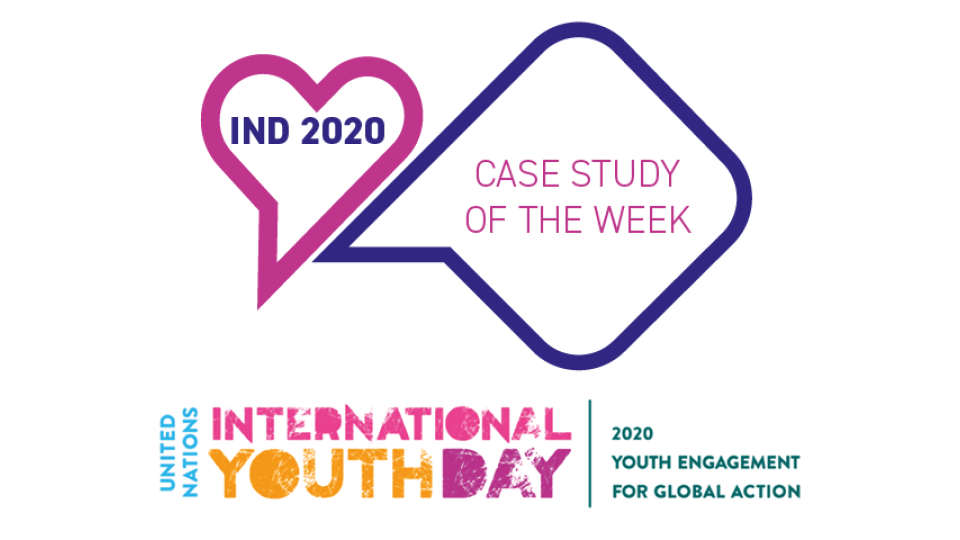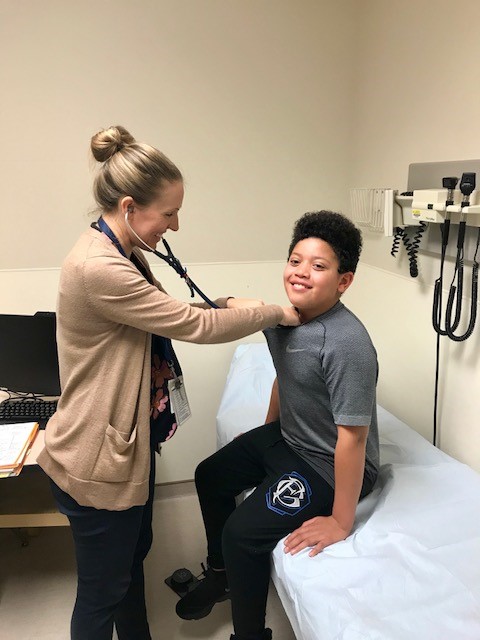International Nurses Day 2020: Case study of the week

International Youth Day: Nurse Practitioner Led Pediatric Primary Care Clinic, Canada
Contributors: Minna Miller, Chantel Canessa, Alissa Collingridge and Lisa Papau
In celebration of International Youth Day on 12 August, ICN presents a case study on how nurses are ensuring access to healthcare for children and youths.
Primary care services provide the first point of contact and access to healthcare. For the paediatric population, the goal is to help children stay healthy and to help those who are ill to get better.
However, access to primary care continues to be a challenge. The Canadian Health Survey (2017) revealed that 4.6 million Canadians (15%) aged 12 years and older, do not have a regular medical doctor. With a declining number of family physicians caring for children, and only a portion of pediatricians providing primary care, it is becoming increasingly difficult for children and their families to access primary care services. Nurse practitioners (NPs) at the Child and Youth Primary Care Clinic (PCC) are filling the gaps and improving access to care.
The NPs at the Child and Youth PCC provide patient-centred, holistic, longitudinal, comprehensive, coordinated primary care services to infants, children and youths up to 19 years of age.
The outpatient NP PCC was established in 2009 adjacent to the Children’s Hospital to address the gaps in care. At that time, there was limited access to paediatric focused primary care services in the community, as well as the absence of comprehensive, ongoing care for high risk, vulnerable children and adolescents in foster care. Post hospitalisation and emergency department care follow up was also limited due to shortage of primary care providers.
In addition, there was a need to streamline asthma care services within the organisation, and as a result, an interdisciplinary asthma care service was set up providing timely diagnosis, management, education and follow-up.
High patient satisfaction with the care provided by NPs increased demand for services and a high number of referrals to the clinic by subspecialist physicians resulted in NP service expansion to subspecialty areas. These included dermatology, high-risk allergy/asthma, complex care, and outreach for young people with mental, behavioral and neurodevelopmental disorders, including substance use and addictions.
The NPs have provided an average of 2,800 patient visits annually, and one fifth of the regular well-child visits have resulted in the identification of a secondary diagnosis requiring further management and follow up.
The most common reasons for primary care visits at the NP clinic are: routine child health check, eczema, asthma, acute upper respiratory infection, contact dermatitis, constipation, iron deficiency/anemia, anxiety, common cold and molluscum contagiosum.
Access to same day appointments has averted more than 80 emergency department visits each year, with a cost savings of approximately $32,000 CAD annually. Calculation of the Return on Investment (ROI) for ED care versus NP care for the management of cold/flu-like symptoms over a period of two weeks, demonstrated a 143% ROI for NP care. Clinic data has shown that approximately 420 new patients who do not have a primary care provider are now attached to the NP PCC annually.
In addition to direct patient care, the clinic NPs, who are all masters/doctorate prepared advanced practice nurses, lead clinically relevant quality improvement and research activities. They disseminate findings and best practices via publications, national, regional and international conference presentations, community health fairs and hospital- based presentations.
The NPs are sought after expert consultants for national and international professional nursing networks, and the Canadian Ministry of Health, Health Authority and agency/department specific committees. Their activities include the development of NP role advancement-related programmes, and their implementation and evaluation.
As university affiliated adjunct professors, NPs support clinical education of NPs and medical students, paediatric residents (junior doctors) and nurses, and they are regularly invited to be guest lecturers for the university.
These NPs function as content consultants, case writers and as examiners for objective simulated clinical exams, which are a requirement for NP licensure in British Columbia, Canada.
NPs at the Child and Youth PCC improve access to paediatric primary care for the populations they serve, and positively impact patient, organisational and healthcare system outcomes in both primary care and subspecialty consultative roles. To ensure the sustainability of NPs as valued members of the healthcare team, it is critical to ensure that permanent funding mechanisms are in place to that end.
